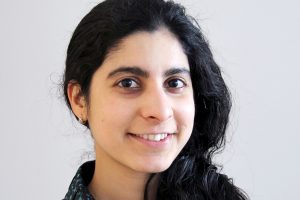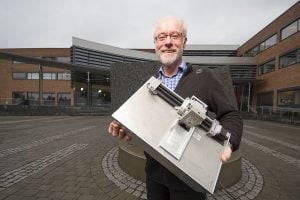
CtrlAQUA partner Freshwater Institute hosted the Aquaculture Innovation Workshop in Vancouver with 185 participants 29-30 November. CtrlAQUA research was well represented. Read Steve Summerfelt’s view in his blog at LinkedIn.
Nofima is prioritizing research, development and innovation on future aquaculture industry. A 3-year position as researcher is available for candidates interested in research areas at the intersection of biology and technology and with the development of aquaculture in closed systems. The position will be in the centre for research driven innovation SFI CtrlAQUA (www.ctrlaqua.no). We…
Nofima is prioritizing research, development and innovation on future aquaculture industry. A permanent position as researcher is available for candidates interested in research areas at the intersection of biology and technology and with the development of aquaculture in closed systems. The position is related to the centre for research driven innovation SFI CtrlAQUA (www.ctrlaqua.no). We…
Nofima is prioritizing research, development and innovation on future aquaculture industry. A permanent position as senior researcher is available for candidates interested in research areas at the intersection of biology and technology and with the development of aquaculture in closed systems. The position is related to the centre for research driven innovation SFI CtrlAQUA (www.ctrlaqua.no).…

New PhD thesis shows that salmon kept in closed-containment fish farms on shore have better welfare in brackish water, and that they can live with higher density in a closed environment than in open sea pens. Atlantic salmon is the most important farmed-fish species in Norway, and the vast majority of the fish are raised…

Sharada Navada is a process engineer from India who, after working a couple of years in the USA and a year in Drammen, has just started her doctoral work at the CtrlAQUA center. She is an employee of Krüger Kaldnes and currently resides in Trondheim where she is doing her PhD at NTNU and Nofima,…

One of the main issues with closed-containment systems is that they incur higher investment costs than traditional rearing technologies, which implies higher production intensity. It is important to research whether salmon post-smolts can perform equally well, or even better, in these closed systems compared with open cages. That’s what Ingrid Gamlem’s master’s degree is about:…

Written by Reidun Lilleholt Kraugerud for the annual report 2016 of CtrlAQUA. Xiaoxue Zhang is a PhD student at NTNU Nanolab, working on the development of a material to apply to sensors in the water treatment systems. Before her arrival at CtrlAQUA, closed-containment aquaculture was totally new to Zhang but, once she had started, she…

Written by Reidun Lilleholt Kraugerud for the annual report 2016 of CtrlAQUA. In office premises in Horten, in the development company ORP – Oslofjord Ressurspark, you will find Bård Haug. On his shelves he has two patents, and in his head he has ambitions. The patents were the brainchild of his former colleague, Frank Karlsen,…

Written by Reidun Lilleholt Kraugerud for the annual report 2016 of CtrlAQUA. Bremnes Seashore is building recirculating aquaculture systems (RAS) for smolt on land. This is part of a long-term strategy based on a detailed assessment of the future production of salmon with little sea lice. “We have tested many options but are now focussing…







